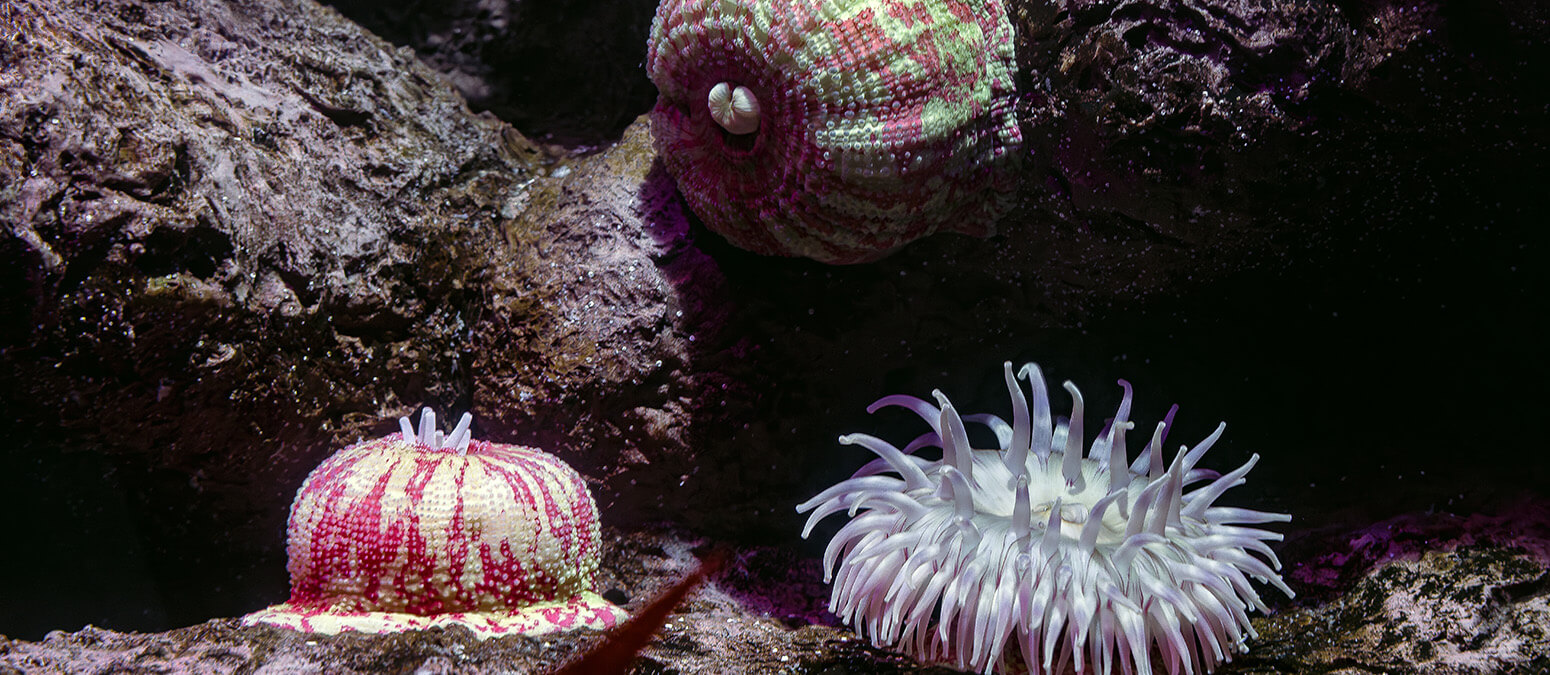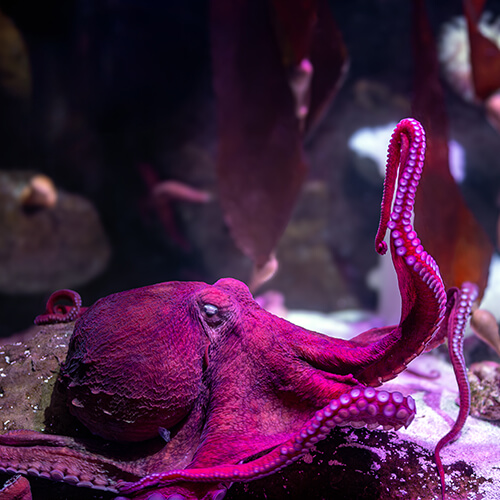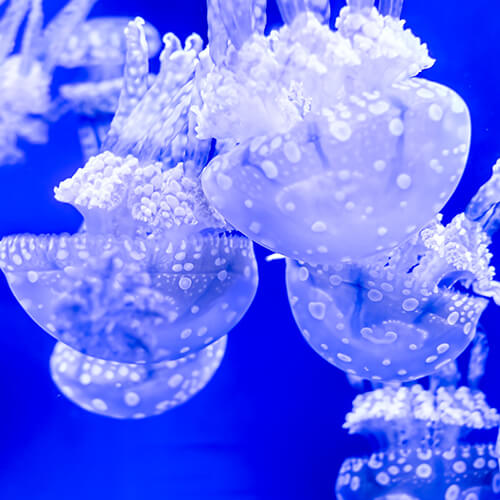
Animal Spotlight
Sea Anemone
Actiniaria
Beautiful, Brainless Predators
With over 1,000 different species ranging in color, size, and shape, sea anemones may look like flowers, but these soft-bodied polyps are anything but helpless. Tiny, harpoon-like stingers on their tentacles called nematocysts help these talented predators capture and paralyze prey before pulling it inside their mouth openings.
Though some species “swim” freely, most stay rooted in place using a sticky “foot” or pedal disc, attaching themselves to rocks, shells, sand, or even hitching rides on crabs. However, if the conditions aren’t quite right, they can somersault away to a better home. They may not have skeletons or brains, but sea anemones often form surprising, symbiotic partnerships with other creatures like clownfish, hermit crabs, and algae.
Meet the Neighbors
Come visit our sea anemones in our Waves of Wonder gallery, which is shared with other fascinating species like the giant Pacific octopus and spotted lagoon jellies.

Giant Pacific Octopus
Sporting 8 arms (not tentacles) these surprising cephalopods are smart enough to solve mazes, open jars, and recognize faces.

Spotted Lagoon Jelly
Also known as the Papua jelly, the spotted lagoon jelly relies on the sun and algae to get most of its food, traveling upward toward the day to absorb maximum sunlight.
Ready to Visit?
Meet a color-shifting giant Pacific octopus, oscillating jellies, and mesmerizing sea anemones when you visit Waves of Wonder at The Florida Aquarium.
